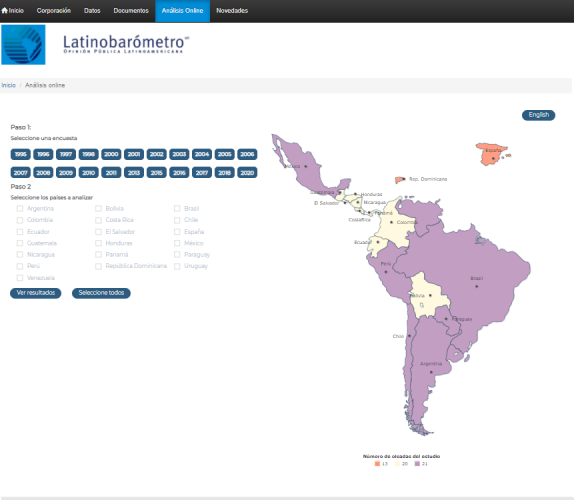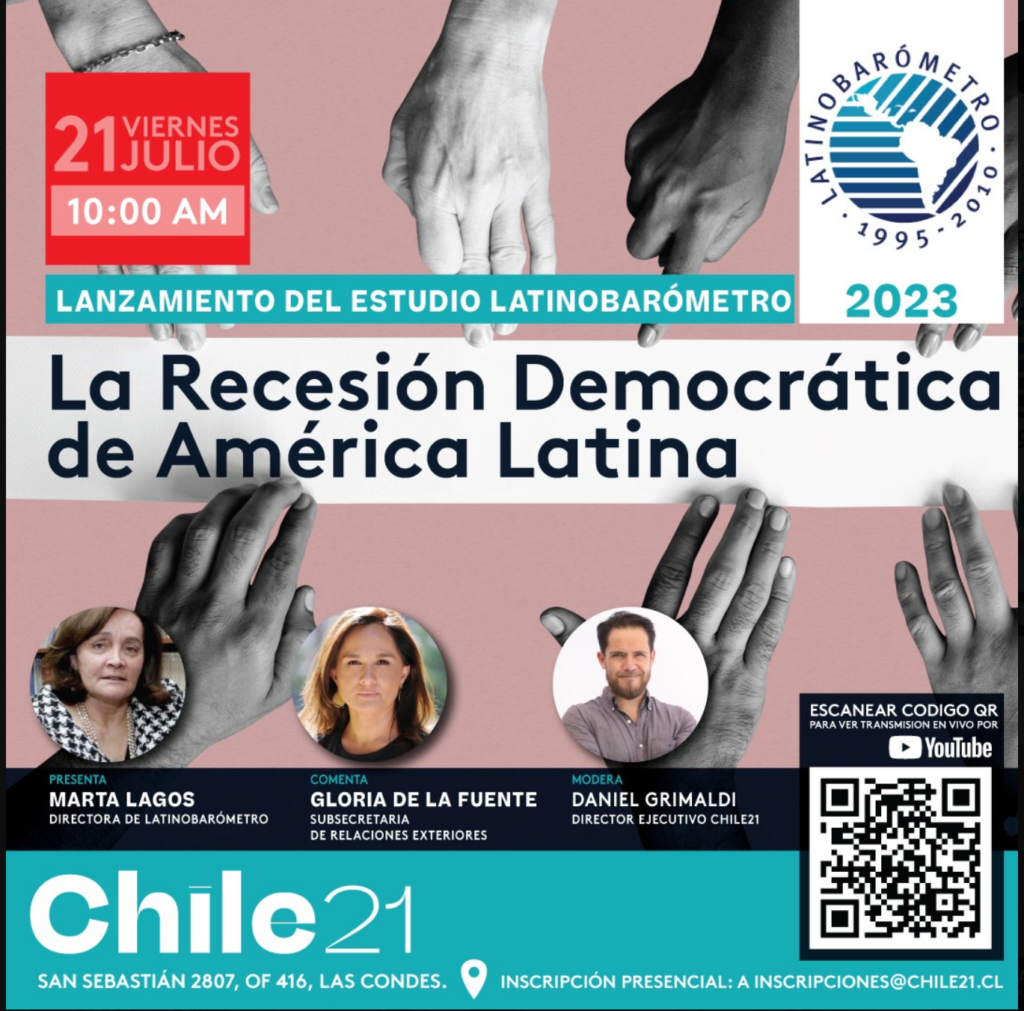 In the latest edition of Latinobarómetro, respondents were asked to rate their approval of 17 named leaders on a scale of one to ten. In 15 of the 17 countries surveyed, Nayib Bukele, El Salvador’s populist, autocratic president, got the highest score—on a list that included Pope Francis and Volodymyr Zelensky, Ukraine’s president. Such broad international appeal has raised concern about the durability of liberal democracy in the region, The Economist reports:
In the latest edition of Latinobarómetro, respondents were asked to rate their approval of 17 named leaders on a scale of one to ten. In 15 of the 17 countries surveyed, Nayib Bukele, El Salvador’s populist, autocratic president, got the highest score—on a list that included Pope Francis and Volodymyr Zelensky, Ukraine’s president. Such broad international appeal has raised concern about the durability of liberal democracy in the region, The Economist reports:
Perhaps the most heartening result is that support for outright dictators remains scant. The two least-popular leaders in the survey were Nicolás Maduro of Venezuela and Daniel Ortega of Nicaragua, who have both banned political opponents and held power by force for more than a decade. And just 17% of the 19,000 respondents agreed with the statement that “an authoritarian government can sometimes be preferable to a democratic one”, a rate within the historical range of 12-19%.
 The survey shows that “even if most people in our hemisphere agree that democracies can and should work better, two-thirds of our citizens still believe that democracy is the best way for government to meet their needs,” U.S. Secretary of State Antony J. Blinken told the Organization of American States General Assembly. Two out of three. That’s actually an increase from just a few years ago.
The survey shows that “even if most people in our hemisphere agree that democracies can and should work better, two-thirds of our citizens still believe that democracy is the best way for government to meet their needs,” U.S. Secretary of State Antony J. Blinken told the Organization of American States General Assembly. Two out of three. That’s actually an increase from just a few years ago.
The church is by far the most trusted institution, winning the backing of 71 per cent of respondents, at some distance ahead of the armed forces and police, Latinobarómetro reports. But only nine per cent of people trust political parties, and even fewer trust Congress, electoral bodies and the judiciary.

Latinobarómetro
Perhaps the most worrisome finding in the poll is the age breakdown of views on democracy, it adds:
Younger Latin Americans, with no memory of the region’s murderous military dictatorships of the 1970s, are the least likely to agree that “democracy is preferable to any other form of government”, whereas support is firmest among the old. Even when comparing people of the same sex and education level in the same country, the share of respondents committed to democracy is around 16 percentage points lower for 20-year-olds than for 75-year-olds. Unless the young of today change their minds as they age, average support for democracy will continue to decline as older generations die off.
If Latin America’s remaining liberal leaders fail to improve their citizens’ lives, democratic backsliding is likely to metastasise into a grim regional trend, The Economist cautions.







